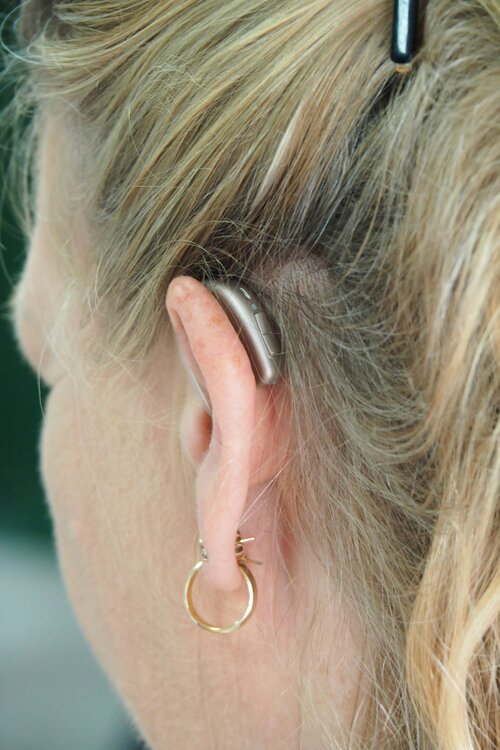
03 Sep Top 5 Signs It’s Time to Visit an Audiologist
Hearing is one of those things most of us take for granted—until it starts to slip away. We often ignore the subtle signs, brushing them off as temporary or insignificant. But here’s the thing: your hearing health is crucial, and neglecting it can lead to long-term issues that might have been easily preventable. So, let’s chat about the top five signs that it might be time for you to schedule a visit to an audiologist.
1. Struggling to Hear Conversations
Ever find yourself nodding along in a conversation, pretending you heard what someone said, but really, you’re just lost? Maybe you’re constantly asking people to repeat themselves, especially in places with background noise like restaurants or crowded rooms. This is a classic sign of hearing loss. When you start missing parts of conversations or have to focus intensely just to catch what’s being said, it’s not something to brush off. An audiologist in Massapequa, Long Island, can assess your hearing and help you get back to enjoying conversations without the stress.
Why It Matters:
- Social connections – Good hearing is key to maintaining strong relationships and staying socially engaged.
- Mental health – Struggling to hear can lead to isolation, frustration, and even anxiety or depression over time.
2. Ringing in Your Ears
Ringing, buzzing, or humming in your ears when there’s no external sound—sound familiar? This condition, known as tinnitus, is often an early sign of hearing issues. It can be incredibly annoying, and while it might seem harmless at first, persistent tinnitus can be a sign of underlying hearing damage or other health issues. An audiologist can help determine the cause of your tinnitus and recommend treatments to manage or alleviate it.
What Could Be Causing It:
- Exposure to loud noises – Like concerts, fireworks, or even prolonged headphone use.
- Ear infections – Can sometimes lead to temporary or permanent tinnitus.
- Hearing loss – Often, tinnitus is an early indicator that your hearing is deteriorating.
3. Turning Up the Volume…Again
When the TV or radio volume keeps creeping up, and your family or neighbors start complaining that it’s too loud, it’s a red flag. You might not notice the gradual increase in volume you need to hear clearly, but others around you do. This is a sign that your hearing may be fading, and an audiologist can determine the extent of the issue.
What to Watch For:
- Volume above normal – If others find it too loud, but it seems just right to you, that’s a sign.
- Constantly adjusting – If you find yourself frequently fiddling with the volume, it might be time for a hearing check.
4. Difficulty Understanding Children and Women
High-pitched voices, like those of children and women, are often the first frequencies to become difficult to hear as we age. If you notice you’re straining to understand what your kids, grandkids, or female friends and family members are saying, it could be more than just a noisy room or a distracted mind. This type of hearing loss can creep up gradually, making it easy to dismiss until it becomes a noticeable problem.
Why This Happens:
- Age-related hearing loss – High-frequency sounds are typically the first to go as part of the natural aging process.
- Noise-induced damage – Long-term exposure to loud sounds can also affect your ability to hear higher frequencies.
5. Frequently Misunderstanding What’s Said
Have you ever misheard something completely, and it ends up being pretty embarrassing? If you find yourself frequently mixing up words or misunderstanding what’s said—like hearing “cat” when someone said “hat”—it’s not just about needing a clearer enunciation. This could be a sign of auditory processing issues or hearing loss. Visiting an audiologist can help determine the cause and provide solutions, whether it’s a hearing aid or auditory training.
The Impact:
- Communication breakdowns – Misunderstandings can lead to confusion and frustration in both personal and professional settings.
- Safety concerns – Mishearing important information, like instructions or warnings, can pose a risk to your safety.

Photo by Mark Paton on Unsplash
Taking Action
Hearing health is something we should all take seriously. If any of these signs sound familiar, it’s time to consider making an appointment with an audiologist. The earlier you address potential hearing issues, the better your chances of maintaining good hearing health and preventing further deterioration.
An audiologist can conduct a thorough hearing test, identify any problems, and discuss the best course of action tailored to your needs. Whether it’s managing tinnitus, recommending hearing aids, or offering tips on protecting your ears from further damage, they’re there to help you keep hearing the sounds that make life vibrant.
The information on MedicalResearch.com is provided for educational purposes only, and is in no way intended to diagnose, cure, or treat any medical or other condition.
Some links may be sponsored. Products, included compounded prescriptions above are not warranted or endorsed.
Always seek the advice of your physician or other qualified health and ask your doctor any questions you may have regarding a medical condition. In addition to all other limitations and disclaimers in this agreement, service provider and its third party providers disclaim any liability or loss in connection with the content provided on this website.
Last Updated on September 3, 2024 by Marie Benz MD FAAD
